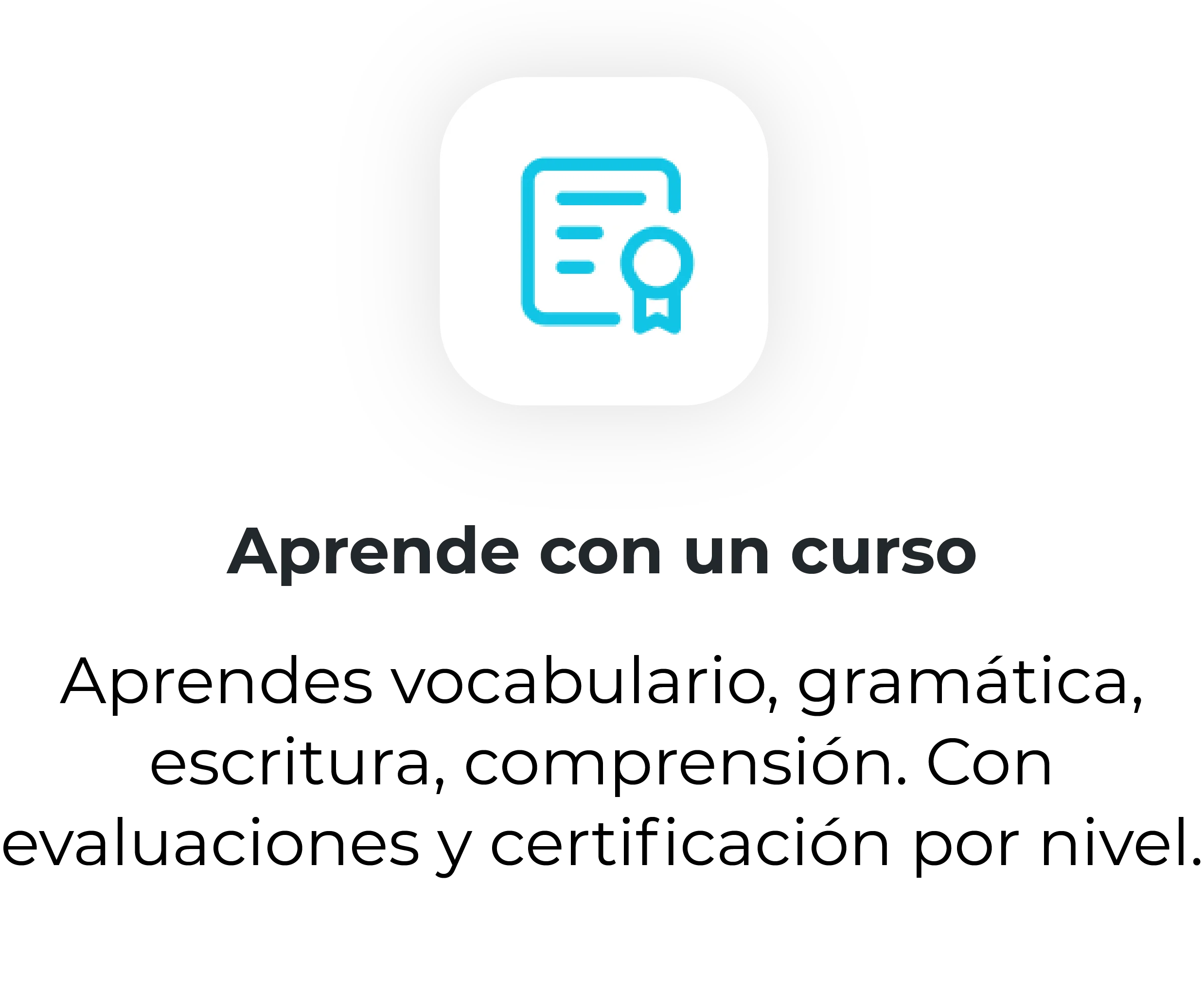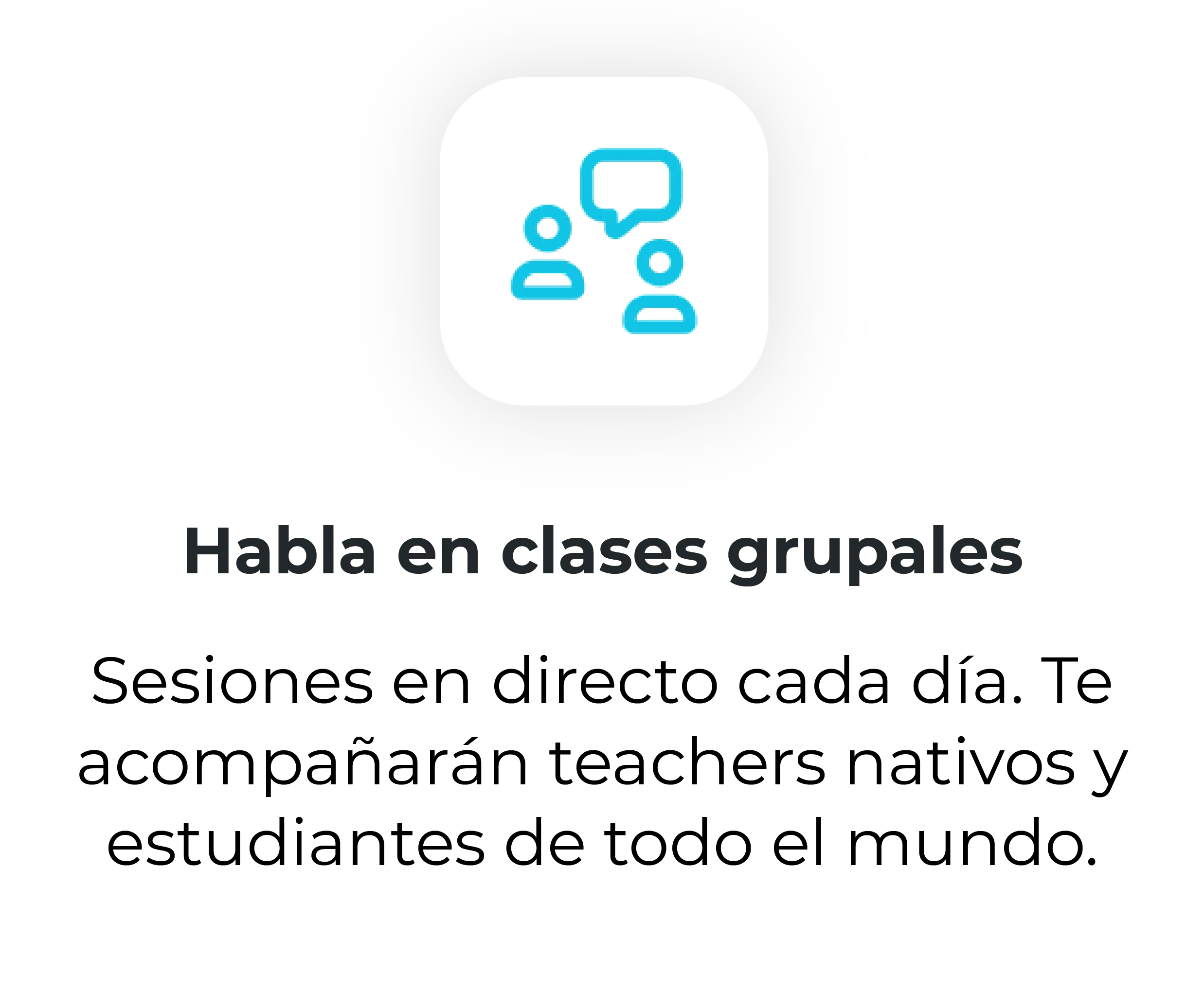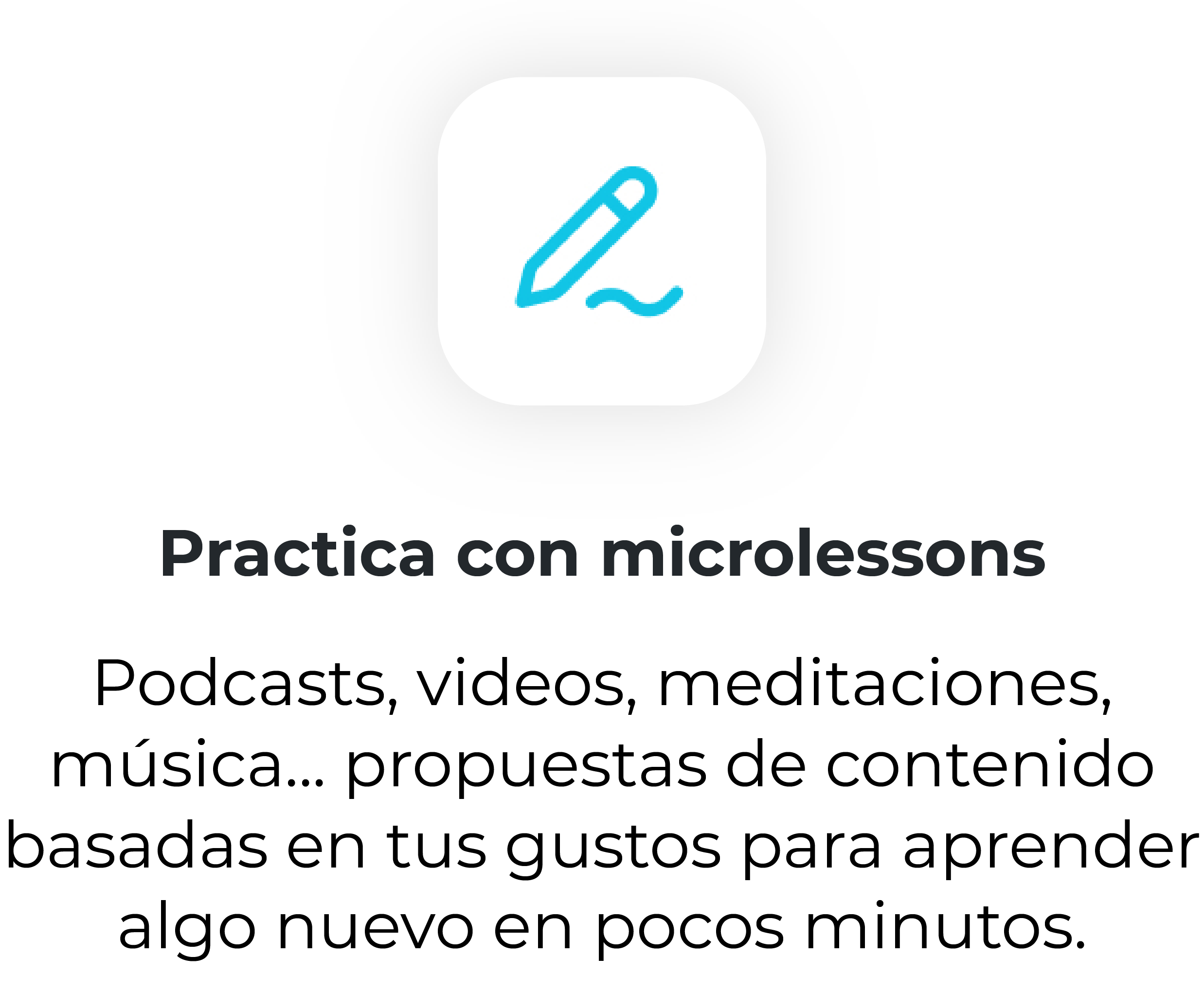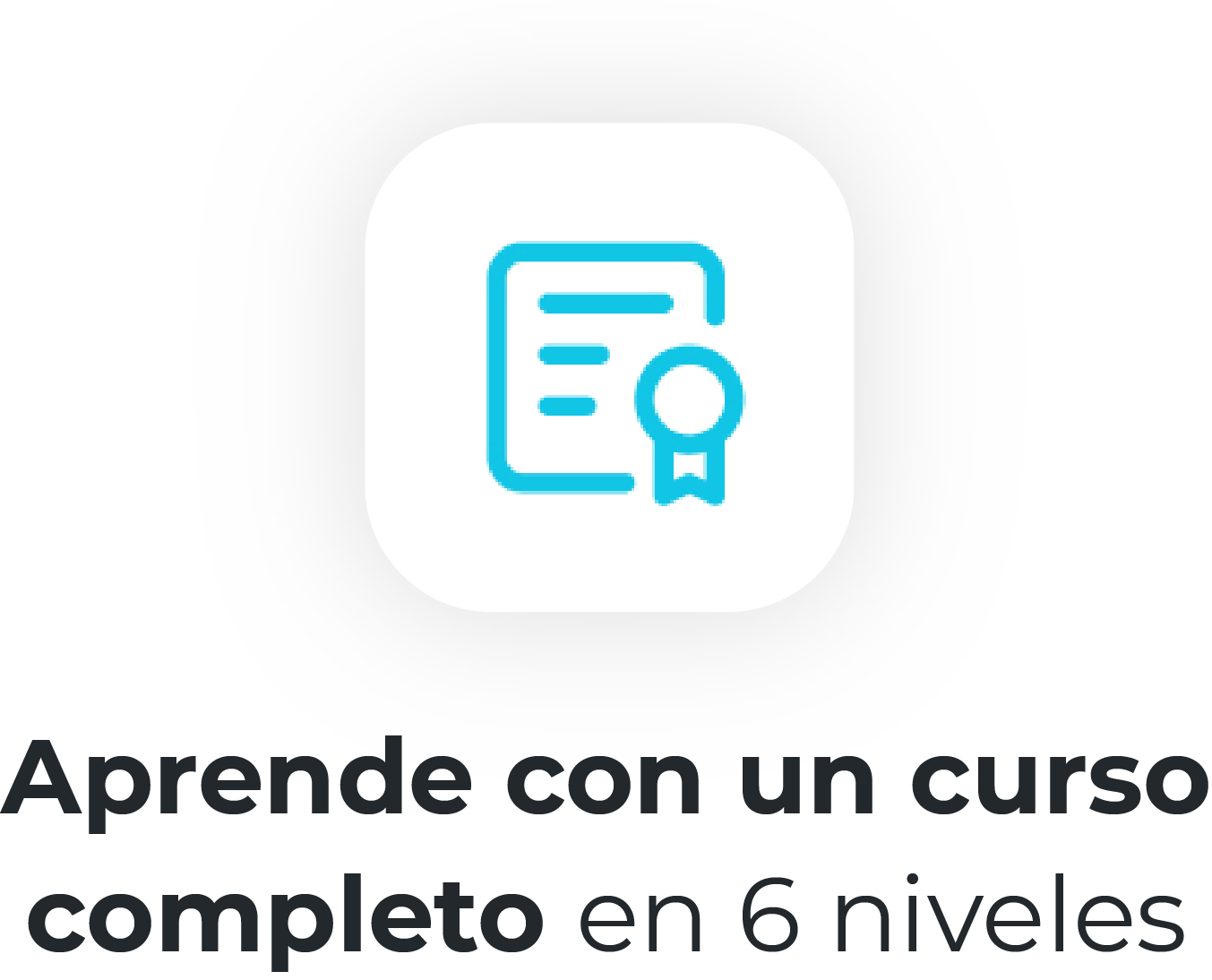El verbo modal will
¿Sabes para qué sirve el verbo will y cómo usarlo en la vida cotidiana? Descubre la respuesta con ABA English y únete a nuestros más de 30 millones de alumnos..
¿Qué es y cuando se usa el verbo will?
Will es un verbo modal, lo que significa que tiene la capacidad de cambiar el contexto de una oración. Es considerado uno de los verbos auxiliares y por lo tanto siempre va acompañado de otro verbo con sentido propio.
Usos del verbo will
Se usa el verbo para referirse a cosas que pensamos que pueden suceder, pero no tenemos la certeza, ya sea en el presente o en el futuro.
Ejemplo:
- I will come to your house around 1 p.m. (Iré a tu casa sobre la 1 p.m.).
Para ofrecer ayuda o pedirla
Uno de los sentidos del verbo modal will es la voluntad por lo que se utiliza para ofrecer o pedir ayuda a alguien. Se usa más frecuentemente el verbo modal can para este tipo de contextos, aunque la diferencia en el sentido es importante.
Ejemplos:
- I will help you with lunch. (Te ayudaré con la comida.)
- Don’t worry, I will leave you the car. (No te preocupes, te dejaré el coche.)
- Please, will you go with me to the doctor? (Por favor, ¿me acompañas al médico?)
- Will you come pick me up when the meeting is over? (¿Vendrás a recogerme cuando acabe la reunión?)
Para resolver las quejas o solicitudes de alguien
También utilizamos el verbo will cuando e uno debe resolver las quejas o las solicitudes de las personas.
Ejemplos:
- Okay, I will do it for you. (De acuerdo, lo haré por ti.)
- If you feel unwell, I will let you go home. (Si te encuentras mal, dejaré que te vayas a casa).
¿Cómo conjugar el verbo will?
Will es un verbo modal y, como tal, el uso del will no tiene todos los tiempos verbales. Pero debes conocer.
A continuación te ofrecemos algunos ejemplos de cómo se conjuga el verbo will en su modo afirmativo, negativo e interrogativo.
Conjugación en presente o futuro
Afirmativo
El futuro con will o will afirmativo es muy sencillo. Recuerda que will es un verbo modal, y este tipo de verbos nunca van precedidos de to. Además, como muchos otros verbos, el futuro de will se suele contraer a la forma ‘ll.
Ejemplos:
- I will go with you / I’ll go with you. (Iré contigo)
- He will give you the keys / He’ll give you the keys. (Él te dará las llaves)
Negativo
Si quieres escribir will en negativo, la opción será will not o la contracción won’t.
Ejemplos:
- In this case, they will not help you / In this case, they won’t help you. (En este caso, ellos no te ayudarán.)
- Now, we will not go here / Now, we won’t go here. (Ahora, no vamos a ir allí.)
Interrogativo
Las construcciones interrogativas funcionan de la siguiente manera: will + sujeto + verbo principal.
Ejemplos:
- Where will we go this weekend? (¿Dónde iremos este fin de semana?)
- Will you help me with moving? (¿Me ayudarás con la mudanza?)
Conjugación verbo will en pasado
El pasado de will se convierte en la forma would y wouldn’t.
- Sorry, we thought that we would arrive on time. (Perdona, pensamos que llegaríamos a tiempo.)
- When I was young, I wouldn’t often go to the disco. (Cuando era joven, no solía ir a la discoteca.)
Regístrate gratis y empieza
ya con tu curso de inglés.
Rellena los huecos y practica el verbo will con este ejercicio
Coloca en los espacios el verbo will con estos ejemplos en todas sus formas, según corresponda:
- My brother hasn’t studied enough. He ____________the exam.(not pass)
- He _________ to his brother’s wedding. (go)
- We _________to another country if we find a good job here. (not move)
- When____________ ? (your father return)
- My mother doesn’t like cars. She ___________ how to drive. (not learn)
- I think he __________ married very fast. (get)
- ___________me a pen, please? (You bring)
- They__________all the questions.(not answer)
- ______________with her husband to Spain? (she not go)
- What ____________next holidays? (your son do)
- He_____________ten articles this week. (write)
- ____________breakfast? (you make)
- You ___________the lottery. (not win)
- You don’t study anything. I think you ____________the exam. (not pass)
- I need to rest. I___________some sleep. (get)
- I don’t have time. _____________the post, please? (you translate)
- You are right. I _____________home late again. (not come)
- I don’t want to see her. This is the reason that I_______________to the meeting. (not go (past)
Respuestas
- won’t
- will go
- won’t move
- will your father return
- won’t learn
- will get
- will you bring
- will not answer
- won’t she go
- will your son do
- will write
- will you make
- won’t win
- will not pass
- will get
- will you translate
- will not come
- wouldn’t go
Otros enlaces de tu interés:

¿QUIERES CONTINUAR?
Te esperamos en ABA English
Somos la primera academia digital de inglés que te ofrece un
curso guiado y personalizado












¿QUIERES CONTINUAR?
Te esperamos en ABA English
Somos la primera academia digital de inglés que te ofrece un
curso guiado y personalizado













